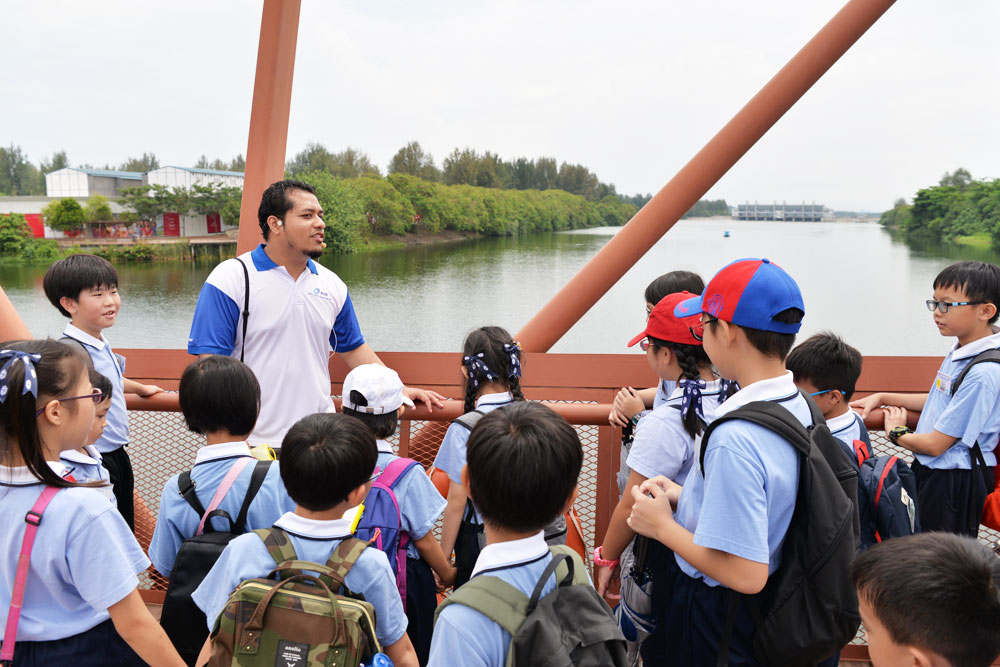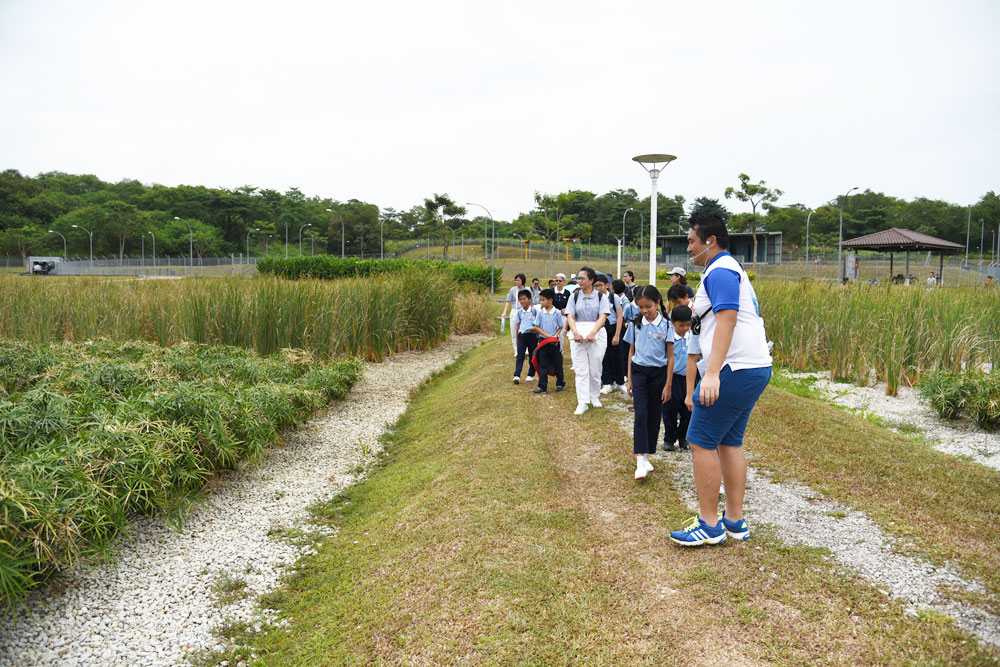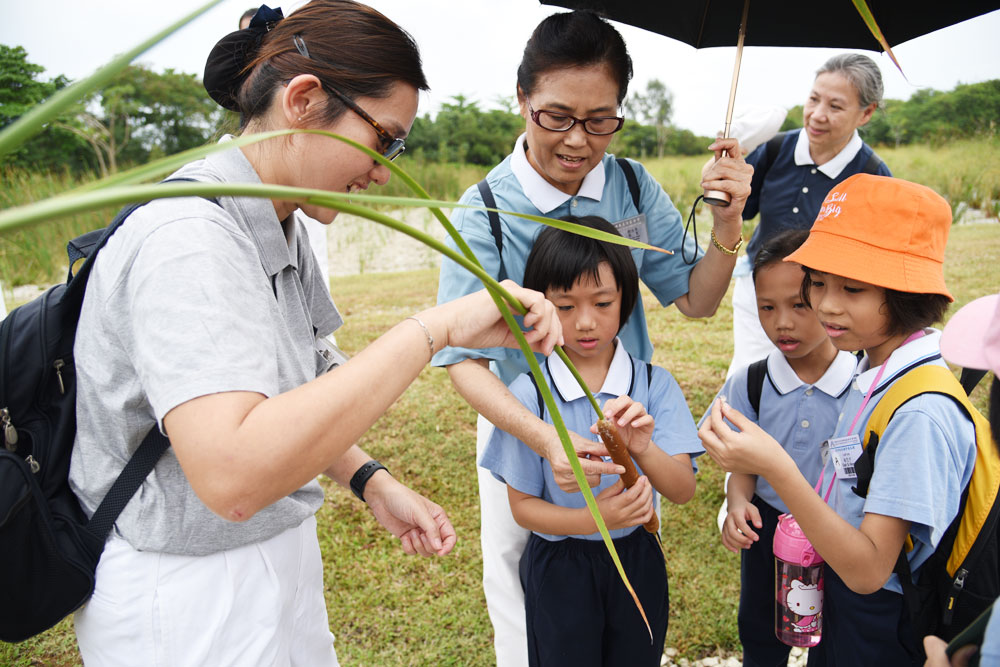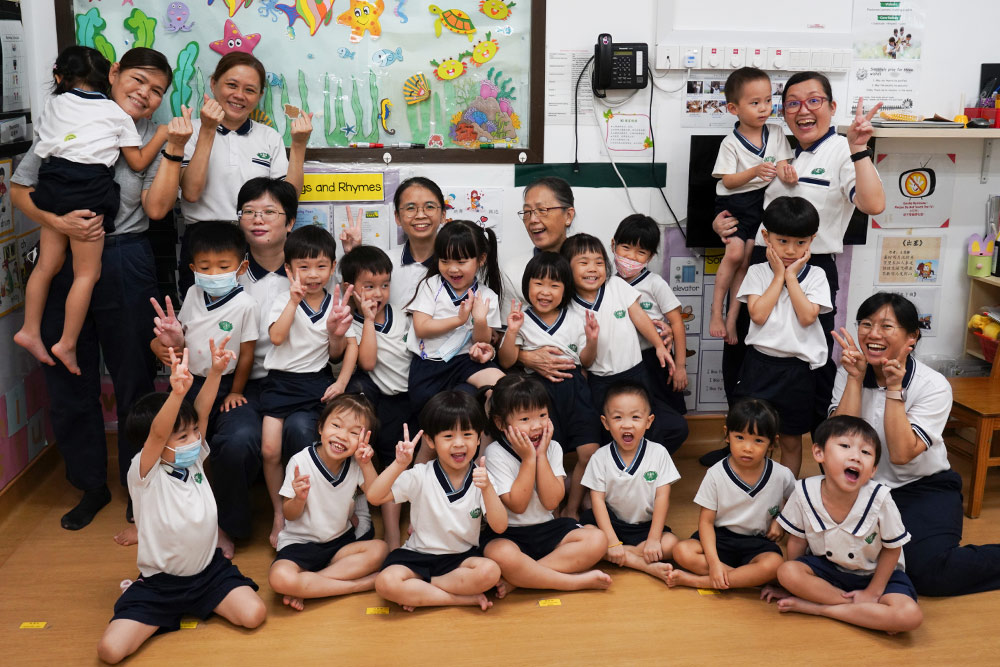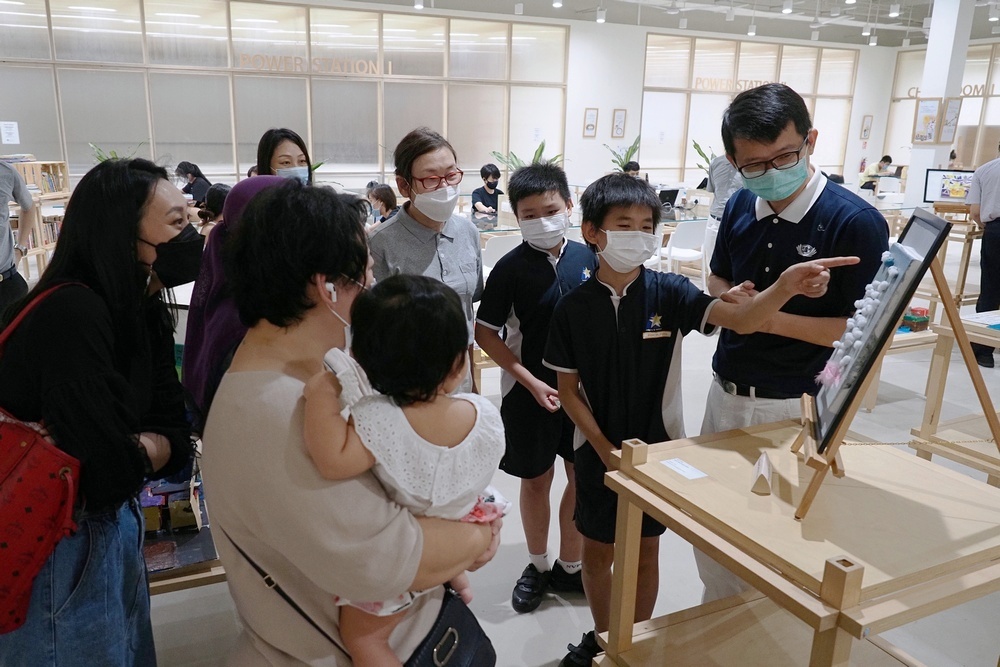 (Photo by Cheng Lai Har)
(Photo by Cheng Lai Har)
On 25 March 2018, a group of children and their parents from the Tzu Chi Parent-Child Bonding Class gathered for an activity with the theme “Saving Water Starts with Me”, which started off with a video screening.
The video featured a character who entered a virtual game world to escape the realities of the world. As he was often mean and offensive towards others, he was a loner without any friends. But after having experienced many challenges and much hardship, he decided to turn over a new leaf.
The class teachers took the opportunity to relate the video content with the Jing Si Aphorism, “Kind words are like beautiful lotus flowers while unkind words are like poisonous snakes.”
When the teacher asked the children for their thoughts about the video, little Guo Wei Song (pictured below) kept his hand raised until he was given the chance to speak. The teacher asked him for an example of right speech, and the young boy replied adorably, “When people give me something, I must say thank you.”
 (Photo by Hong Yong Xiang)
(Photo by Hong Yong Xiang)
On the same day, the children were taken on an outing to Lorong Halus Wetland, which is located next to Serangoon Reservoir. Their parents were arranged to visit the Bedok NEWater Plant. Before departure, everyone viewed another short video titled “The Singapore Water History”, which talked about the main water sources in Singapore, namely water from catchment areas, recycled NEWater, imported water, and desalinated water.
It started to drizzle when the children arrived at Lorong Halus Wetland. Due to the unexpected change in weather, the tour guide gathered everyone under a sheltered area and started quizzing the children to test their memory of what they had just learned in the morning.
“When do we use the most water every day?” asked the tour guide.
“During a shower!” exclaimed the children.
“What is the suggested duration of a shower?” asked the tour guide again.
“Five minutes!” replied the children.
 (Photo by Hong Yong Xiang)
(Photo by Hong Yong Xiang)
The guide awarded each child who gave a correct answer a packet of biscuits. As the children responded enthusiastically to the quiz questions, it wasn’t long before the guide finished distributing all the biscuits. Then he jokingly said that the empty biscuit box could also be a reward for a correct answer. Despite so, the kids were still competing to answer the last question.
The winner of the biscuit box was Yang Si Han, who already knew how to conserve water despite her young age. Little Si Han said that she always remembers to turn off the tap at home after use.
 (Photo by Hong Yong Xiang)
(Photo by Hong Yong Xiang)
After the rain had stopped, the tour guide introduced the site planning of Lorong Halus Wetland to his young audience. He said that the wetland was formerly a rubbish dump site, thus, to avoid polluting the reservoir, a 6.4km long and 18m deep underground impervious wall was constructed to prevent the penetration of dirty water into the soil. Many types of water-purifying aquatic plants, such as vetiver and umbrella papyrus, were also visible on the wetland.
On the east side of the island, the parents arrived at the Bedok NEWater plant, which started operating in 2003. They learned about the three stages of the “water renewal” process: 1) removal of micro solid waste and particles 2) filtration of hazardous pollutants, such as bacteria, virus and heavy metals, and 3) sanitization of the water with UV rays.
 (Photo by Chua See Siew)
(Photo by Chua See Siew)
One of the parents, Wang Qing Bin, took a lot of photos with his mobile phone throughout the tour. He noted that while clean water is readily available in Singapore, the people in Capetown, South Africa, are about to face a severe water shortage this year, according to experts.
“I only realise the importance of water now,” he said with a sigh.
Another parent Kong Min Ze was very impressed that such a massive water plant is able to operate automatically. This is the 4th year he and his wife participate in the Parent-Child Bonding Class. He shared that he has been using the water he collected from shower to flush his toilet for 7 to 8 years. His wife, You Li Hua, saves water by using a cup whenever she brushes her teeth, so that the tap is not left running when she rinses her mouth.
Both Mr. and Mrs. Lu Chu Sheng had experienced water rationing before in the past. Lu recalled a time in the 1980’s when he was still a primary school student, he had to queue to obtain water. He opined that the people of his generation or a generation older than him may value water more than the younger generation nowadays, who generally lacks the awareness of water conservation. He commented that although we are all taught to treasure our water resources in Singapore, many do not put it into practice in their daily lives.
“Maybe everyone has to go through water rationing before they will realise how precious water is,” said Lu.

